 Eat Empowered
Eat Empowered  Healthy Eating Tips
Healthy Eating Tips  Weight Loss
Weight Loss  Wellness Advice from Experts
Wellness Advice from Experts
Diets Decoded: Plant-Based Diet
Home » Eat Empowered » Diets Decoded: Plant-Based Diet
Is a plant-based diet healthy?
Plant-based—the wellness buzzword that has been hash-tagged more than 32 million times on Instagram and can be found in everything from headlines to menus. But what exactly does it mean to eat plant-based? We’ve got the plant-based diet decoded for you.
What is a Plant-based Diet?
Think of this one as more of a lifestyle than a diet. There’s no clear definition of a plant-based diet, so you might see the term being used to refer to a variety of eating patterns such as vegan, vegetarian or flexitarian. Nonetheless, a plant-based diet simply refers to a diet that emphasizes whole plant foods and keeps animal products and processed foods to a minimum.
What You Eat on a Plant-Based Diet
You’ll be keeping it simple with this diet. Minimally processed, plant foods including vegetables, fruit, whole grains, legumes, nuts and seeds will make up the majority of your meals and snacks. In other words, whole foods without a label, package, or long ingredient list are most often what you’ll be looking for. Animal products, including meat, poultry, fish, eggs, and dairy, can be consumed too, but the emphasis will be on the plants. Food quality is also another important part of a plant-based diet. Locally sourced and organic foods are often prioritized. If you’re going to consume animal products, then you should aim to purchase quality items such as grass-fed beef or free-range eggs.
What You Don’t Eat on a Plant-Based Diet
Nothing is off limits on a plant-based diet, but animal products, including meat, poultry, fish, dairy, and eggs, are either removed or consumed sparingly. Think of animal products as supporting actors rather than the main show with this diet. You’ll also want to avoid processed foods as much as possible, even if they’re plant-based. This includes highly processed foods such as chips, lunch meats, and vegan meats and cheeses that no longer provide the same nutritional benefits as they do in their original, whole-food state.
Pros and Cons of a Plant-Based Diet
A plant-based diet is an all around win-win, especially given the flexibility it affords to meet your personal preferences, nutritional needs, and lifestyle. It’s no secret you’re better off without overly-processed foods that are stripped of their nutrients and high in added sugars, refined grains, and sodium. Additionally, eating less animal products means more room in your diet to load up on nourishing plant foods that are loaded with gut health-promoting fiber, disease-fighting antioxidants, and anti-inflammatory healthy fats.
RELATED: The Inflammatory Foods You Should Really Avoid
It’s hard to deny the numerous health benefits associated with plant-based diets. One meta-analysis of randomized controlled trials found those assigned a vegetarian diet had significant weight loss compared to those assigned non-vegetarian diets. In addition to weight, evidence suggests that plant-based diets are associated with a reduced risk of heart disease, Type 2 diabetes, and even some types of cancer.
Wondering how you can add more plants to your diet? Try meatless Mondays and use meat as a garnish rather than a centerpiece. Pile up at least half your plate with vegetables, swap animal protein for legumes, tofu or whole grains, or try enjoying fruit as a sweet treat. Better yet, check out some of our favorite recipes below for delicious, plant-based inspiration for every eating occasion.
The Bottom Line
Flexible, sustainable, nutritious—this is one diet we wholeheartedly support. Load up your plate with as many nutrient-dense whole foods as possible. Then you get to decide if and how you’d like to add in some high-quality animal products. By focusing less on what you’re removing from your diet, and more on what health-boosting foods you can add to your diet, the plant-based eating pattern is one you can and should do for the long haul.
The healthiest diet is an approach to eating that fuels your body and mind and fits into your lifestyle. Eating empowered means listening—really listening—to your body and focusing on the diverse, delicious, healthy foods you can have rather than what a hard-to-follow diet says you can’t have.
Plant-based Recipes We Love
-
Low Sugar Berry Green Smoothie
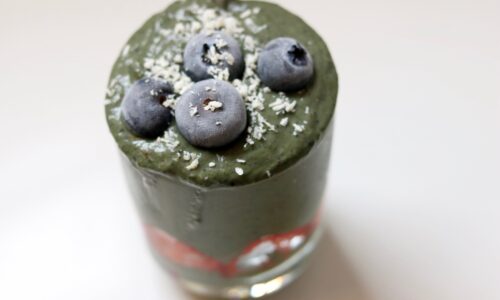
This is as green as a smoothie can be (the way we like it!) but is sweet and yummy thanks to the vanilla-almond butter-berry combo. The addition of avocado makes it extra creamy. Get the recipe here.
-
Healthy Morning Glory Muffins
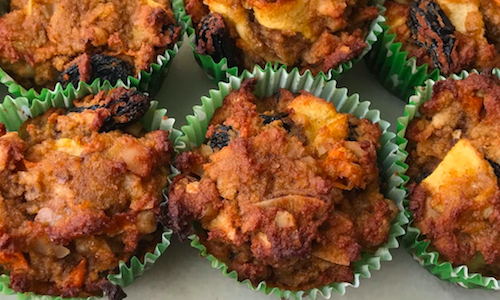
If you love the flavors of autumn, you’ll fall for these muffins fast, thanks to pumpkin, apple and cinnamon. Bonus: chia seeds add a protein punch. Get the recipe here.
-
Avocado Toast with Roasted Zucchini and Corn
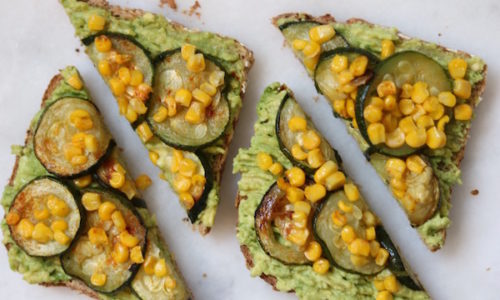
Avo toast is a great source of (Instagram-friendly) healthy fats, while zucchini provides fiber, folate and vitamin C. While corn gets a bad rap because it’s such a massive GMO commodity, it’s actually filled with antioxidants. (Just buy it fresh from a local organic farm stand, if you can). Get the recipe here.
-
Smoky Rosemary Maple Tempeh
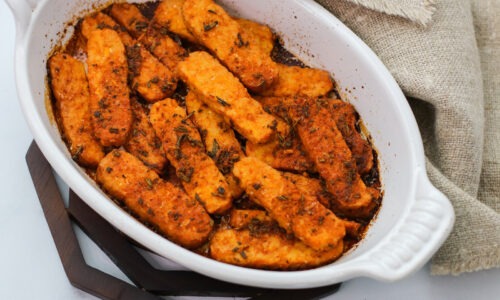
Tempeh is an excellent source of plant-based protein, and since it’s fermented, many people find it more easily digestible compared to tofu. Here, that protein is supplemented with all kinds of nutrient-dense marinade ingredients, like garlic, cayenne pepper and apple cider vinegar. Get the recipe here.
-
Coconut Bacon Sandwich
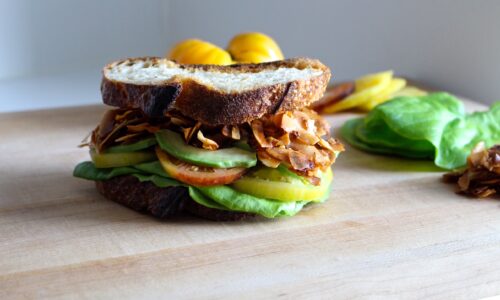
Instead of processed meat, you get mushrooms, which are one of the few dietary sources of vitamin D. The protein-rich chickpeas are tossed with antioxidant-rich spices. And while a standard BLT doesn’t come with a letter A, we’ll put avocado’s healthy fats on anything. Get the recipe here.
-
Vegetarian Quesadilla with Broccoli Rabe
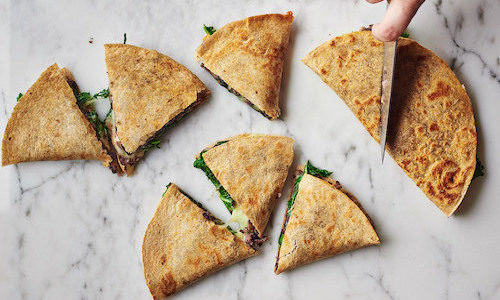
Who doesn’t love a cheesy quesadilla? This one layers nutrient-dense broccoli rabe (fiber! vitamins!) into the protein-packed cheese and black beans—and holds it all together with a tortilla made with whole grains instead of white flour. Get the recipe here.
-
Vegan Chocolate Gingerbread Protein Muffins
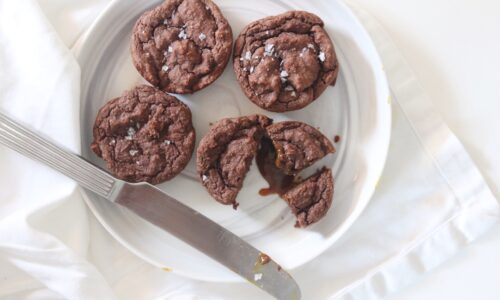
These muffins are a sweet treat for all kinds of eaters—from vegan to gluten-free—without the use of any strange replacement ingredients (just healthy, whole foods). They also deliver tons of flavor and protein. Get the recipe here.
-
Peanut Butter Honey Energy Balls
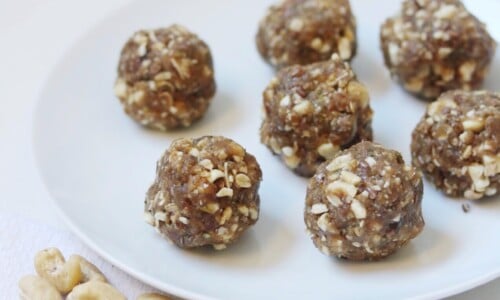
These energy balls take minutes to assemble and are the perfect, portable snack for running errands or bouncing between meetings. It’s a balanced bite featuring fiber from the oats and pumpkin, healthy fats from the chia seeds and coconut, and protein from the nut butter. That means sustained energy you can count on! Get the recipe here.
-
Spiced Kale Chips
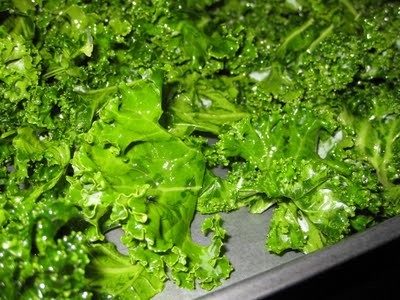
Kale is a rock star of the produce aisle, even if its popularity has gotten a little played out. Turn it into chips and you’ve got an extra way to eat it—as a snack. It may also be a way to get your kids into the leafy green, if you call it “chips” and emphasize the salty crunch. Get the recipe here.
(Image credits: Nutritious Life, Shutterstock)
The Nutritious Life Editors are a team of healthy lifestyle enthusiasts who not only subscribe to — and live! — the 8 Pillars of a Nutritious Life, but also have access to some of the savviest thought leaders in the health and wellness space — including our founder and resident dietitian, Keri Glassman. From the hottest trends in wellness to the latest medical science, we stay on top of it all in order to deliver the info YOU need to live your most nutritious life.
RECENT ARTICLES

Want a sneak peek inside the program?
Get FREE access to some of the core training materials that make up our signature program – Become a Nutrition Coach.
Get Access"*" indicates required fields













































































































































































































































































































































































































































































































































































































































































































































































































































































































































































































































































































































































































































































































































































































































